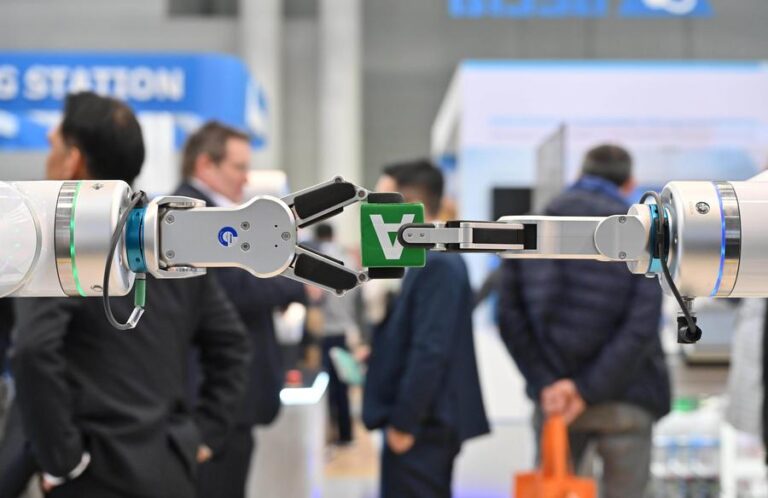Experts believe that next generation network technology will take industrial production to the next level.
HANNOVER, Germany, April 25 (Xinhua) — 6G will become the “foundation of the next industrial revolution,” technology experts said this week at the globally influential Hannover Messe 2024 trade fair.
Frank Burkhardt of the Fraunhofer Institute for Integrated Circuits (Fraunhofer IIS) said that 6G technology will enable factory workers to perform tasks that they could not currently dream of.
Experts believe that next generation network technology will take industrial production to the next level.
According to Germany’s 6G Research and Innovation Cluster (6G-RIC), which showcased its advances at the trade show, key innovation areas for 6G include addressing bandwidth limitations in existing infrastructure and large-scale connectivity with widespread connectivity. It should include creating a network. various devices.
6G-RIC researcher Johannes Domel said at the event that artificial intelligence and computing infrastructure within the network will play a more important role in 6G.
Domel emphasized that next-generation networks will make more sensors, data and computing capabilities available to the industry. “I think 6G provides the answer to the growing trend of data and devices.”
Marius Schmitz, a research engineer at Kaiserslautern-Landau University, told Xinhua that 5G technology already offers a powerful network in terms of latency, data speed and reliability, but one network for all purposes. He said he could not function as such.
“In our vision, 6G has the potential to become a more versatile network that can fit many different applications simultaneously,” Schmitz said.
However, it is currently unclear when 6G will be put into practical use. “The 6G standardization process could take a long time.”
Christian Bauer, senior technology architect at Belden, said during the trade show that 5G paved the way for the development of cellular communications, but 6G takes it to the next level.
Whether in ports, mining or manufacturing, 6G will not only meet but exceed industrial requirements, he said. But he added, “From my perspective, this is a marathon, not a sprint.” ■


